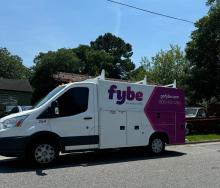
One of the great things about innovation in the technology space is that entrepreneurs and their new ideas typically don’t require a large number of people to get a new venture off the ground. Small teams can make big impacts. What they DO require, however, often includes opportunity and support — enter RIoT. Now, the network of technologists, engineers, business leaders, academics, policy makers, and entrepreneurs, who have an interest in the Internet of Things industry will be coming to Wilson, North Carolina.
That's A RAP in Wilson
The Regional Internet of Things Accelerator Program (RAP) started working with North Carolina innovation startups in 2018. The first cohort of IoT companies included entities focused on a variety of innovations that integrate the IoT space.
RIoT worked with startups in the Triangle region, but now they're bringing the RAP east to Wilson, where it will take up residence in the Gig East Exchange, Wilson's incubator and startup resource facility. The 2020 RAP program will be in Wilson through the spring.
According to RIoT Executive Director Ton Snyder, "Experience has shown that many smart entrepreneurs are not able to relocate to Raleigh or Charlotte, so RIoT is making an effort to get closer to them.”
In addition to Wilson's fiber optic network, Greenlight Community Broadband, the town's Gig East Exchange impressed the RIoT leadership. Snyder described the community's leaders as "visionary and forward acting" and clearly invested in economic development. RIoT has been working with North Carolina companies since 2014; their efforts have helped create more than 400 jobs in the state.
They work with teams in person for a three-month program period and describe the program as "a mix of on-site workshop programming and mentorship [with] dedicated time to work on your company." You can learn more about the program here, including FAQs, that discuss what types of projects and teams are most suited to the program.
Check out this video on Wilson's Gig East Exchange:







